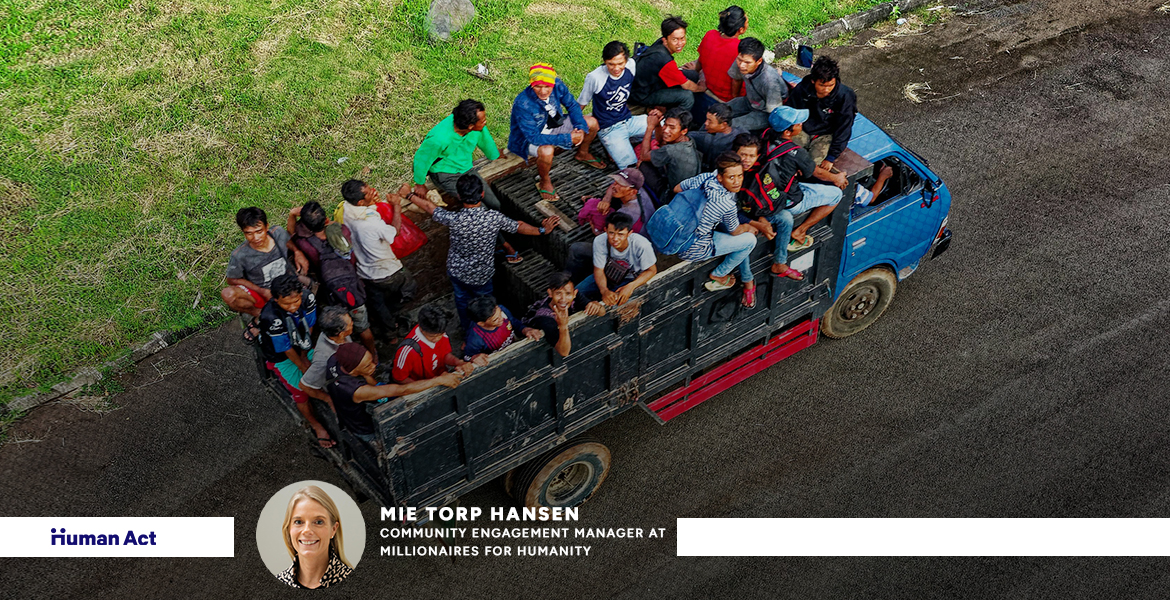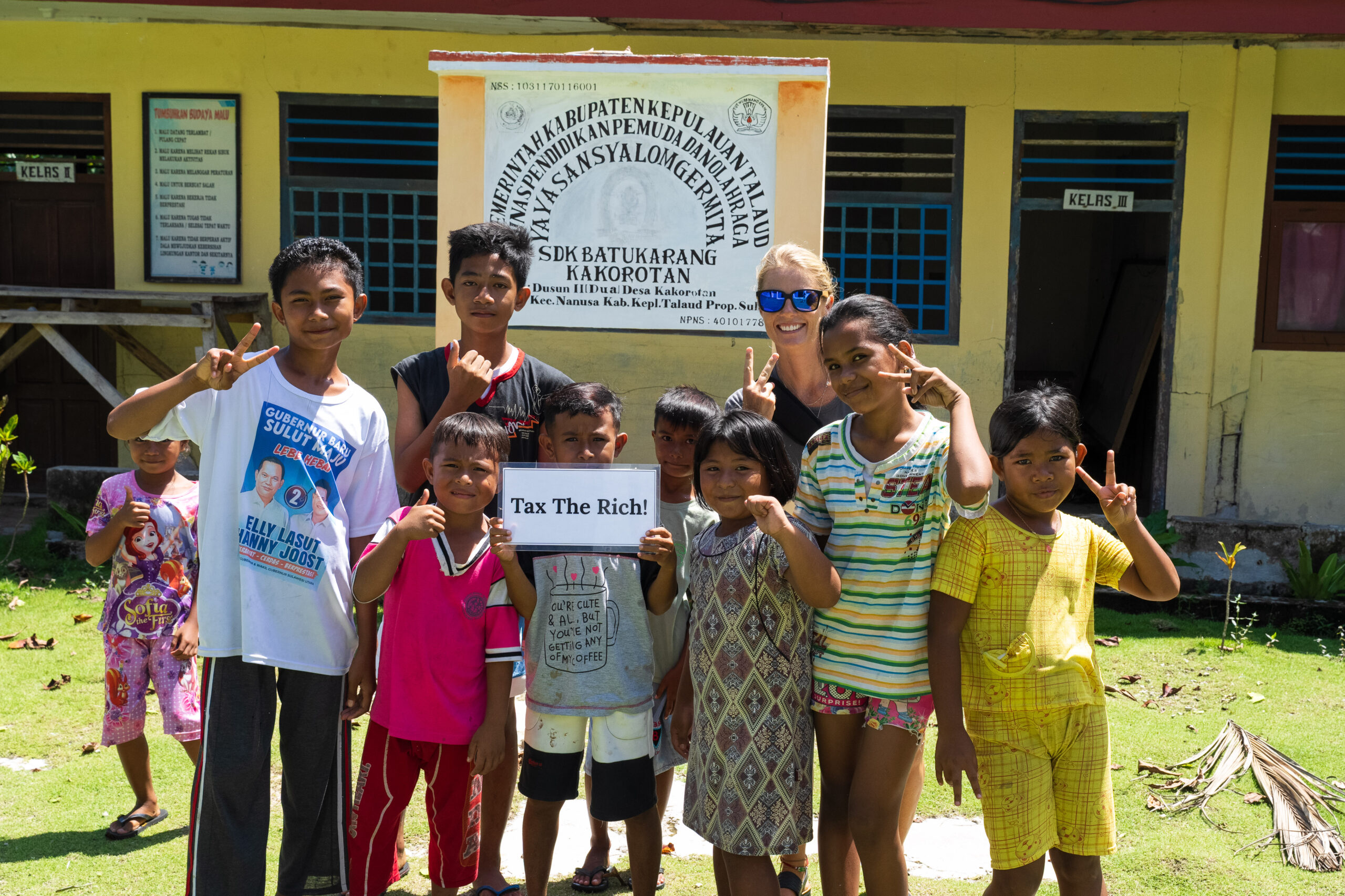


Hear Mie’s story of how the waves of inequality have reached this island.
From the unique vantage point of her own sailboat, currently circumnavigating the globe, Mie Torp Hansen, Community Engagement Manager at Millionaires for Humanity, has gained an intimate understanding of how wealth inequality shapes the lives of so many, something she is now trying to document with a series of “TaxTheRich” photographs.
Arriving at Kakorotan, a remote Island in the Northern Indonesian archipelago, the initial impression isn’t one of conventional poverty. The islanders here possess a deep connection to their environment, drawing sustenance from the bountiful ocean and their fertile gardens. There are no stores, no avenues for the consumerism that dominates much of the world. Life moves to a different rhythm.

However, to believe life is easy here would be a profound misjudgment, and the root of their challenges reflects the stark realities of global wealth inequality. Consider this: while they have food, access to essential services that many take for granted is severely limited. The nearest reliable medical care is a significant journey by sea, a prohibitive distance in an emergency.
Their children’s education is hampered by a lack of resources, no internet to access the vast libraries of knowledge available online, and few modern tools to aid their learning. Their livelihoods, dependent on fishing and small-scale farming, are vulnerable to the increasingly volatile climate, a crisis disproportionately fueled by the emissions of wealthier nations.
Despite its natural beauty and abundant resources, Indonesia faces a stark reality: significant wealth disparity. The concentration of wealth is extreme, with the wealthiest 1% controlling a substantial portion of the nation’s assets. In fact, some reports indicate that the combined wealth of Indonesia’s four richest individuals surpasses that of its poorest 100 million citizens. This widening gap, which has accelerated faster than in most other Southeast Asian nations over the last two decades, severely undermines poverty reduction efforts. The benefits of economic growth are not reaching everyone, leaving the poorest with minimal improvements to their living standards.
The needs of Kakorotan’s people are remarkably modest, yet the impact of fulfilling them would be transformative. Solar panels to power a simple refrigerator could preserve food and vital medicines. Internet access and a computer in the school would unlock a world of educational opportunities for their children, empowering future generations.
Basic farming tools could ease their labor and increase their yields, providing greater food security. And when the inevitable storms, intensified by climate change, strike, a small reserve of funds could be the lifeline needed to rebuild their homes and livelihoods.
A relatively small redistribution of wealth, such as through a wealth tax in more affluent nations, could provide the necessary resources to make these crucial improvements. It’s a matter of global justice, ensuring that the prosperity of some can contribute to the well-being and resilience of others
The smiles on these children’s faces, holding that simple sign, embody the hope for a more equitable world, where their potential is not limited by the circumstances of their birth or the vast inequalities that currently define our global landscape.
"*" indicates required fields